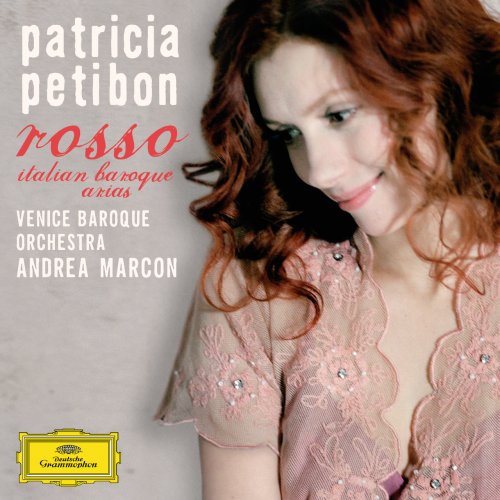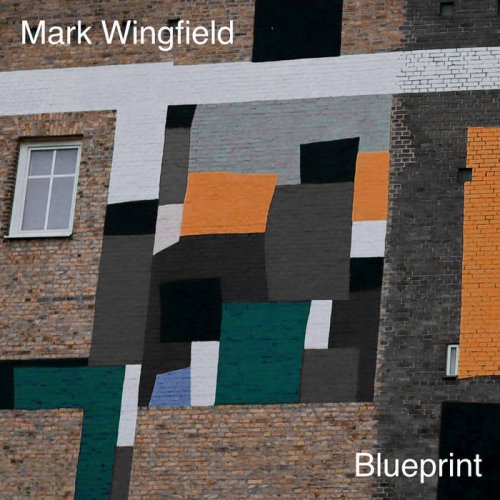Patricia Petibon, Venice Baroque Orchestra, Andrea Marcon - Rosso: Italian Baroque Arias (2010)

Artist: Patricia Petibon, Venice Baroque Orchestra, Andrea Marcon
Title: Rosso: Italian Baroque Arias
Year Of Release: 2010
Label: Deutsche Grammophon
Genre: Classical, Vocal
Quality: FLAC (tracks) / MP3 320 Kbps
Total Time: 01:15:23
Total Size: 415 Mb / 195 Mb
WebSite: Album Preview
Tracklist: Title: Rosso: Italian Baroque Arias
Year Of Release: 2010
Label: Deutsche Grammophon
Genre: Classical, Vocal
Quality: FLAC (tracks) / MP3 320 Kbps
Total Time: 01:15:23
Total Size: 415 Mb / 195 Mb
WebSite: Album Preview
01. Quando voglio
02. Queste lagrime e sospiri
03. Tornami a vagheggiar
04. "Lascia ch'io pianga"
05. "Volate, amori"
06. "Piangerò la sorte mia"
07. Se il mio dolor t'offende
08. Ah, mio cor
09. Neghittosi, or voi che fate
10. Morte amara
11. Siam navi all'onde
12. Orfeo, tu dormi
13. Come mai puoi vedermi piangere
14. Caldo sangue
Performers:
Patricia Petibon, soprano
Venice Baroque Orchestra
Andrea Marcon, conductor
Rosso, soprano Patricia Petitbon's collection of Italian Baroque opera arias, may well be one of the most fun Baroque vocal recitals a listener is likely to encounter because Petitbon is so obviously having the time of her life. The arias, some familiar and some genuine rarities, from operas and oratorios by Handel, Vivaldi, Alessandro Scarlatti, Stradella, Porpora, and Sartorio, express a broad range of emotion, including overwhelming grief, delight and wonder, seductive innuendo, and explosive rage. Petitbon, a spectacular singing actress, throws herself into them with such unselfconscious abandon and such interpretive insight that the listener, even without looking at the texts, is left with no doubt about the specific, sometimes evolving, emotional states of the characters. Purists may take offense at the extremity of her interpretations, which use sighs, whoops, shouts, and whispers to convey the extremity of the characters' emotional states, but their expressive honesty and directness are inarguable. Petitbon's luminous, prismatically lustrous voice and her flawless technique and agile virtuosity should dispel suspicions that she resorts to dramatic extremes to cover any vocal deficit. Every track is a marvel of interpretive depth and vocalism of the highest order, but Alcina's lament "Ah! Mio cor!" is especially dazzling; to heighten the intensity of Alcina's despair, Petitbon transposes some passages up an octave into the stratosphere and others down an octave into solidly baritonal range, to stunning effect. In Cleopatra's "Quando voglio," from Sartorio's Giulio Cesare in Egitto, Petitbon weaves a spell of irresistible, playful sensuality. Scarlatti's "Caldo sangue" from Ismaele puts the limpid purity of her voice; her seamless, velvety phrasing; and the sensitivity of her dramatic instincts on full display. Andrea Marcon leads the Venice Baroque Orchestra in exceptionally thoughtful and inventive realizations of the scores. Deutsche Grammophon's clean, present, well-balanced sound provides an ideal environment for the pristine clarity of the performances. Petitbon's recital sets a high standard for Baroque performance and should appeal to fans of music of the period and of remarkable singing.

![Dave Bainbridge - ON THE EDGE (OF WHAT COULD BE) (2025) [Hi-Res] Dave Bainbridge - ON THE EDGE (OF WHAT COULD BE) (2025) [Hi-Res]](https://img.israbox.com/img/2025-12/18/7l4en830rpyaxdtr7izc3qrx6.jpg)
![Clifton Chenier - Live (1972) [Hi-Res] Clifton Chenier - Live (1972) [Hi-Res]](https://img.israbox.com/img/2025-12/20/ho8gau8m3me6gvkdop8e21lq3.jpg)
![Frank Sinatra, Count Basie - It Might As Well Be Swing (1964) [2021 SACD] Frank Sinatra, Count Basie - It Might As Well Be Swing (1964) [2021 SACD]](https://www.dibpic.com/uploads/posts/2025-12/1766090910_scan-1.jpeg)



![Xavi Torres - Amsterdam Magic (2025) [Hi-Res] Xavi Torres - Amsterdam Magic (2025) [Hi-Res]](https://www.dibpic.com/uploads/posts/2025-12/1766061682_cover.jpg)
